Online-Live
Format
Weekday/Weekend
Batch
3 Months
Recommended 7-8 Hrs/Week
March 20, 2021
Start Date






Syllabus
Build your AWS, Microsoft Azure, and Google Cloud Platform expertise from the ground up with Vepsun’s comprehensive Cloud Architect – Master Program with industry certification. This program will help you master the architectural principles and services of the top cloud platforms, enabling you to design and deploy highly scalable, fault-tolerant applications and develop skills to transform yourself into an AWS, Azure and GCP.
Partnerships and Certifications Alignment
This Post Graduate Diploma in Cloud Program is aligned to the curriculum of Amazon Web Services and Microsoft Azure. We are the registered training provider for this program.
- AWS Solution Architect
- AWS SysOps Associate
- Microsoft Azure Fundamentals
- Microsoft Certified: Azure Administrator Associate AZ:104
- Microsoft Azure Architect Technologies: AZ:303
- Google Cloud Engineer - Associate
Partnerships and Certifications Alignment
This Post Graduate Diploma in Cloud Program is aligned to the curriculum of Amazon Web Services and Microsoft Azure.
- AWS Solution Architect
- AWS SysOps Associate
- Microsoft Azure Fundamentals (AZ-900)
- Microsoft Certified: Azure Administrator Associate AZ:104
- Microsoft Azure Architect Technologies: AZ:303
- Google Cloud Engineer - Associate
This AWS Solutions Architect Certification training will enable you to design, plan, and scale AWS implementations utilizing over 70 cloud computing services. The course is aligned with the latest AWS exam featuring Amazon designated best practices.
Key Learning Objectives
- By the end of this course, you will:
- Formulate solution plans and provide guidance on AWS architectural best practices
- Design and deploy scalable, highly available, and fault-tolerant systems on AWS
- Identify the lift and shift of an existing on-premises application to AWS
- Decipher the ingress and egress of data to and from AWS
- Select the appropriate AWS service based on data, compute, database, or security requirements
- Estimate AWS costs and identify cost control mechanisms
Course Curriculum
Self Paced Learning Curriculum
- Lesson 01 - Introduction
- Lesson 02 - Getting Started With AWS
- Lesson 03 - Identity and Access Management
- Lesson 04 - S3
- Lesson 05 - EC2 and EBS
- Lesson 06 - ELB and Autoscaling
- Lesson 07 - Cloudwatch
- Lesson 08 - VPC0
- Lesson 09 - Databases
- Lesson 10 - Route 53
- Lesson 11 - Additional Key Services
- Lesson 12 - SAA C02 Latest Services
This AWS SysOps training is a prerequisite to the DevOps Engineer Certification. You will learn how to migrate on-premise applications to AWS, control the flow of data to and from AWS, master the AWS management console, implement operational cost controls, and enhance your ability to efficiently leverage AWS resources and services.
Key Learning Objectives
- By the end of this course, you will be able to:
- Deploy, manage, and operate scalable, highly available, and fault-tolerant systems on AWS
- Migrate an existing on-premises application to AWS
- Ensure data integrity and data security on AWS technology
- Select the appropriate AWS service based on compute, data, or security requirements
- Identify appropriate use of AWS operational best practices
- Understand operational cost control mechanisms and estimate AWS usage costs
Course Curriculum
Self Paced Learning Curriculum
- Lesson 01: AWS Platform and Certification Overview
- Lesson 02: Monitoring Metrics and Analysis
- Lesson 03: High Availability
- Lesson 04: Compute
- Lesson 05: Databases
- Lesson 06: Deployment and Provisioning
- Lesson 07: Automation and Optimization
- Lesson 08: Storage and Data Management
- Lesson 09: Security and Compliance
- Lesson 10: Networking
Vepsun’s Microsoft Azure Fundamentals Training Course will familiarize you with the main principles of cloud computing and how they have been implemented in Microsoft Azure. This course will get you up to speed on Azure services, security, privacy, compliance, trust, pricing, and support.
Key Learning Objectives
- After completing this course, you will be able to:
- Describe cloud computing, Azure, and Azure subscriptions Describe and create Azure web apps
- Create and configure VMs in Microsoft Azure
- Describe Azure storage
- Describe and deploy databases in Azure
- Describe Azure AD
Course Curriculum
Self Paced Learning Curriculum
- Module 01 - Cloud Concepts
- Module 02 - Core Azure Services
- Module 03 - Security, Privacy, Compliance, and Trust
- Module 04 - Azure Pricing and Support
Vepsun’s Azure Administrator training provides you with a deep understanding of the entire administrative lifecycle in Azure environments. This Azure course shows you how to maintain services related to computing, storage, network, and security. Enhance your Azure Administrator skills and prepare to ace the AZ-104 Azure Administrator exam.
Key Learning Objectives
- After completing the Azure Administrator online training course, you will be able to:
- Manage subscriptions, billing, and role-based access control regarding Azure users and groups
- Utilize Azure Monitor to configure alerts and review the Azure Activity Log Deploy resources with ARM templates and organize Azure resources
- Implement, manage, and secure storage with shared access keys, Azure backup, and Azure File Sync
- Store and access data using Azure Content Delivery Network and the Import and Export service
- Build, execute, manage, and monitor virtual machines in Azure Portal with Azure PowerShell
- Use Azure DNS domains, zones, record types, and resolution methods
- Execute site connectivity schemas comprising VNet-to-VNet connections and virtual network peering
- Integrate, secure, and manage identities with Azure Active Directory, Self-Service
- Password Reset, Azure AD Identity Protection, and integrated SaaS applications
- Migrate servers to Azure
- Implement use cases and configuration options for Azure App Services and App Service environments
- Manage and secure web apps with backup, restore, snapshot, and cloning
- Deploy serverless computing features such as Azure Functions, Event Grid, and Service Bus
- Configure Azure Load Balancer, Azure Traffic Manager, and Azure Application Gateway
- Use Azure RBAC to grant a granular level of access based on an administrator’s assigned tasks
- Utilize Azure Multi-factor Authentication to configure a strong authentication for users at sign-in
- Execute Azure AD Privileged Identity Management to configure access rights based on the just-in-time administration
Course Curriculum
Self Paced Learning Curriculum
- Course Introduction
- Module 2 Identity
- Module 3 Governance and Compliance
- Module 4 Azure Administration
- Module 5 Virtual Networking
- Module 6 Interconnectivity
- Module 7 Network Traffic Management
- Module 8 Azure Storage
- Module 9 Azure Virtual Machines
- Module 10 Serverless Computing
- Module 11 Data Protection
- Module 12 Monitoring
The Microsoft Azure Architect Technologies AZ-303 online training course prepares you for a career as a certified Azure Cloud Solutions Architect. You will learn how to manage Azure resources, configure and deploy virtual machines, and master Azure Cognitive Services solutions as you become familiar with the Azure platform.
Key Learning Objectives
By the end of this Microsoft Azure Architect Technologies AZ-303 Training course, you will be able to:
- Manage Azure subscriptions and resources
- Configure, deploy, and manage virtual machines and networks
- Evaluate and perform server migration to Azure
- Implement and manage advanced virtual networking and application services Manage and secure identities
- Select compute and storage solutions
- Perform hybrid networking
- Evaluate throughput and structure of data access
- Create web applications using PaaS
- Create apps and services running on Service Fabric
- Use Azure Kubernetes Service for health monitoring and maintenance Develop long-running tasks and distributed transactions
- Configure a message-based integration architecture
- Develop for asynchronous processing and autoscaling
- Create Azure Cognitive Services solutions
Course Curriculum
Section 01: Course Introduction
- Lesson 01: Course Introduction
Section 02: Implement and Monitor an Azure Infrastructure
- Lesson 01: Implement Cloud Infrastructure Monitoring
- Lesson 02: Implement Storage Accounts
- Lesson 03: Implement VM’s for Windows and Linux
- Lesson 04: Automate Deployment and Configuration of Resources
- Lesson 05: Implement Virtual Networking
- Lesson 06: Implement Azure Active Directory
- Lesson 07: Implement and Manage Hybrid Identities
Section 03: Implement Management and Security Solutions
- Lesson 01: Manage Workloads in Azure
- Lesson 02: Implement Load Balancing and Network Security
- Lesson 03: Implement and Manage Azure Governance Solutions
- Lesson 04: Manage Security for Applications
Section 04: Implement Solutions for Apps
- Lesson 01: Implement An Application Infrastructure
- Lesson 02: Implement Container based App
Section 05: Implement and Manage Data Platforms
- Lesson 01: Implement NoSQL Databases
- Lesson 02: Implement Azure SQL databases
Vepsun’s Google Cloud Platform Architect certification program will aid you with the skills needed to advance your career in the cloud architecture and become a certified Google Cloud Architect Professional. The course covers IAM, Networking, cloud storage,and much more. This online GCP Architect certification course introduces you to the comprehensive and flexible infrastructure and platform services provided by Google Cloud Platform. You will learn to analyze and deploy infrastructure components such as networks, storage systems, and application services.
Key Learning Objectives
By the end of this Google Cloud Engineer Associate course, you will be able to: Set up GCP account and utilize GCP services: Networking, storage, content and delivery network Add Identity Access Management member Understand Google Virtual Machines and how to work with them Comprehend cache and restrictions and how to avoid excessive billing Store and manage data in the cloud SQL
Associate Cloud Engineer Certification Overview
- ● Exam Overview and Expectations
- ● Exam Prep
- ● Activity: Google Practice Exam
- ● Exercise: Creating a GCP Account
Understanding GCP Core Principles Services, Projects, and Resources:
- ● Services
- ● Projects
- ● Enabling Services and APIs
- ● API Conventions
- ● Resources
Securing Resources with IAM:
- ● IAM
- ● Members
- ● Roles
- ● Permissions
- ● 3 Types of Roles
- ● Service Accounts
- ● Service Account Keys
- ● IAM Hierarchy
- ● Organization and Folders
- ● Exercise:
- ● Getting Started with GCP Projects
Automating GCP Resources.Scripting with the Google Cloud SDK
- ● Google Cloud SDK
- ● Installing the SDK
- ● Configuring the SDK
- ● gcloud
- ● gsutil
- ● bq
- ● Exercise:
- ● Scriptingwith gcloud, gsutil, and bq command-line interfaces
Programming with GCP
- ● Programming RESTful Service Calls
- ● Leveraging Language SDKs
- ● Exercise:
- ● Utilizing GCP Resources in Your Applications
Deployment Manager
- ● Creating Infrastructure with Deployment Manager
- ● Marketplace
- ● Exercise:
- ● Understanding Deployment Manager
Exam Prep
- ● Quiz
Compute Engine and NetworkingCreating and Managing Virtual Machines
- ● Creating Machines
- ● Creating Machines with gcloud
- ● Connecting to Linux Machines
- ● SSH with gcloud
- ● Third-Party SSH Tools
- ● Managing SSH Keys
- Project Keys
- ● Instance Keys
- ● Connecting to Windows Machines
- ● Exercise: Virtual Machines
Load Balancing and Autoscaling
- ● Scalable, Fault Tolerant Architecture
- ● Instance Templates
- ● Instance Groups
- ● Autoscaling Configuration
- ● Health Checks
- ● Load Balancers
- ● Cloud DNS
- ● Cloud CDN
- ● Exercise: Load Balancing and Autoscaling
Configuring VPC Networks
- ● VPCs
- ● Networks and Subnets
- ● CIDR Addressing
- ● Firewall Rules
- ● Shared VPCs
- ● Adding Machines to Networks
- ● Exercise: Networking
Connecting Networks
- ● VPN
- ● Cloud Router
- ● Interconnect
Exam Prep
- ● Quiz
Saving Data to Google Cloud PlatformStorage Overview
- ● Choosing Google Cloud Storage Solutions
Saving Files to Google Cloud Storage
- ● Storage Overview
- ● Buckets
- ● Storage Classes
- ● Transfer Jobs
- ● Encryption By Default
- ● Customer Managed Encryption Keys
- ● Customer Supplied Encryption Keys
- ● Exercise: Cloud Storage
Saving Relational Data with Cloud SQL and Spanner
- ● Cloud SQL Overview
- ● Cloud SQL Features
- ● Spanner Overview
- ● Exercise: Cloud SQL Buckets
Configuring VPC Networks
- ● VPCs
- ● Networks and Subnets
- ● CIDR Addressing
- ● Firewall Rules
- ● Shared VPCs
- ● Adding Machines to Networks
- ● Exercise: Networking
Saving NoSQL Data with Bigtable and Datastore
- ● Bigtable Overview
- ● Datastore Overview
- ● Exercise: Datastore
Exam Prep
- ● Quiz
Docker Containers
- ● Docker
- ● Docker Containers
- ● Dockerfile
- ● Docker Commands
- ● Building Docker Containers
- ● Pushing Containers to Docker Hub
- ● Running Docker Containers
- ● Cloud Build
- ● Container Registry
ConfiguringKubernetes
- ● Deployments
- ● Load Balancers
- ● Autoscalers
- ● Kubernetes Commands
- ● Exercise: Deploying a Web Application with Docker and Kubernetes
Exam Prep
- ● Quiz
Deploying Applications with App EngineApp Engine Overview
- ● App Engine Core Concepts
- ● App Engine Standard
- ● App Engine Flex
- ● Configuring App Engine Applications
- ● Deploying App Engine Applications
- ● Exercise: Deploying an App Engine Application
Managing App Engine Versions
- ● Deploying New Versions
- ● Traffic Splitting
- ● A/B Testing
- ● Canary Deployment
Exam Prep
- ● Quiz
Cloud Functions Overview
- ● Cloud Functions
- ● Creating Cloud Functions
- ● Triggers
- ● Bucket Trigger Example
- ● Pub/Sub Trigger Example
- ● Exercise: Deploying Event-Driven Cloud Functions
Cloud Functions APIs
- ● Building Node.js Applications
- ● Exercise: Deploying a Node.js Express API
Exam Prep
- ● Quiz
Stackdriver MonitoringStackdriver Services
- ● Monitoringi
- ● Logging
- ● Alerts
- ● Health Checks
- ● Uptime Checks
- ● Dashboards
- ● Debugging
- ● Tracing
Architecting Solutions on GCPCloud Solutions Architecture Reference
- ● Architecture Examples
Exam Prep
Certifications
Cloud Architect - Master in Cloud Computing Certified by AWS, Microsoft & Google.

Microsoft AZ-104: Microsoft Azure Administrator Certification
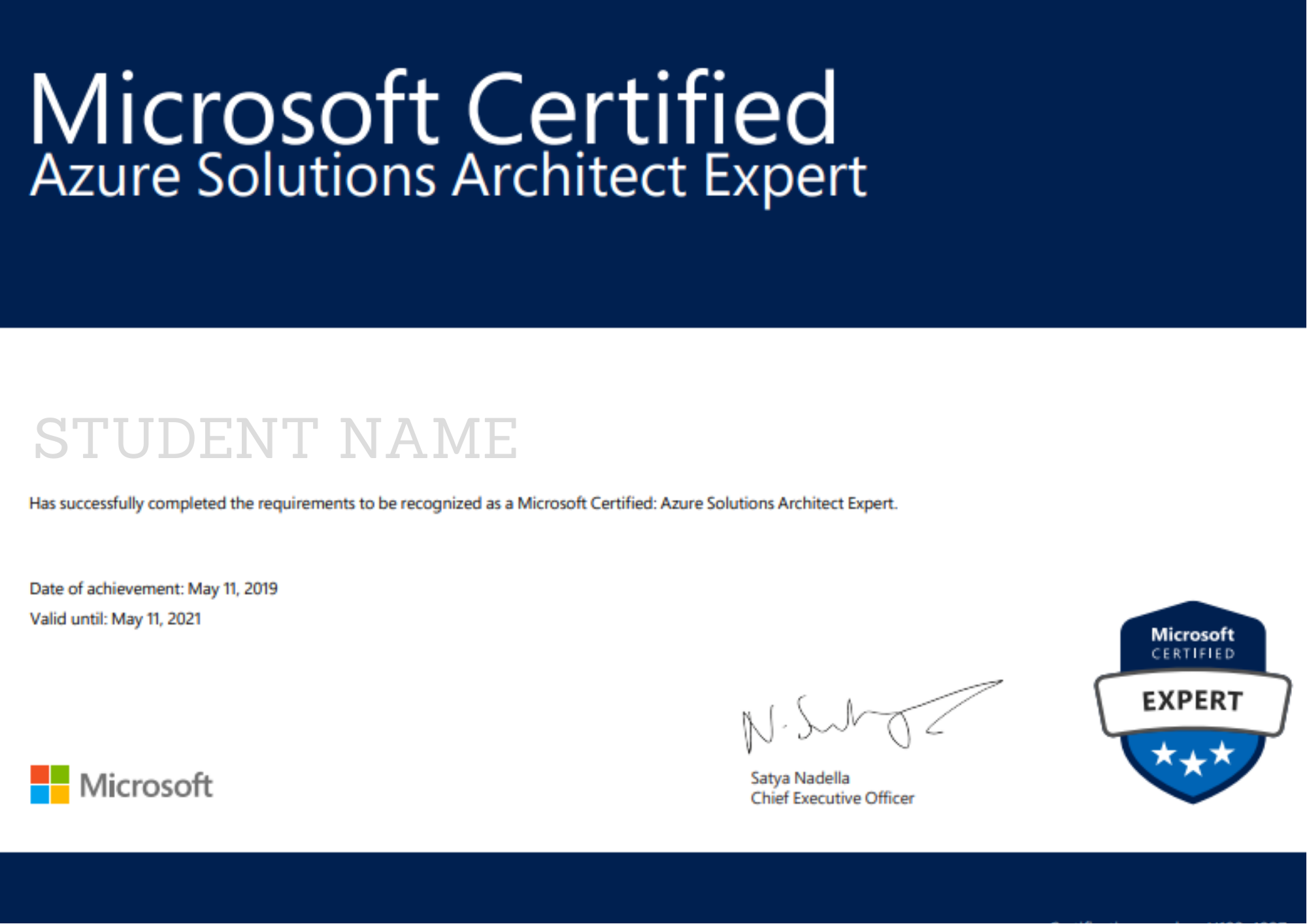
Microsoft AZ-303: Microsoft Azure Architect Technologies Certification
AWS Solutions Architect Associate Certification
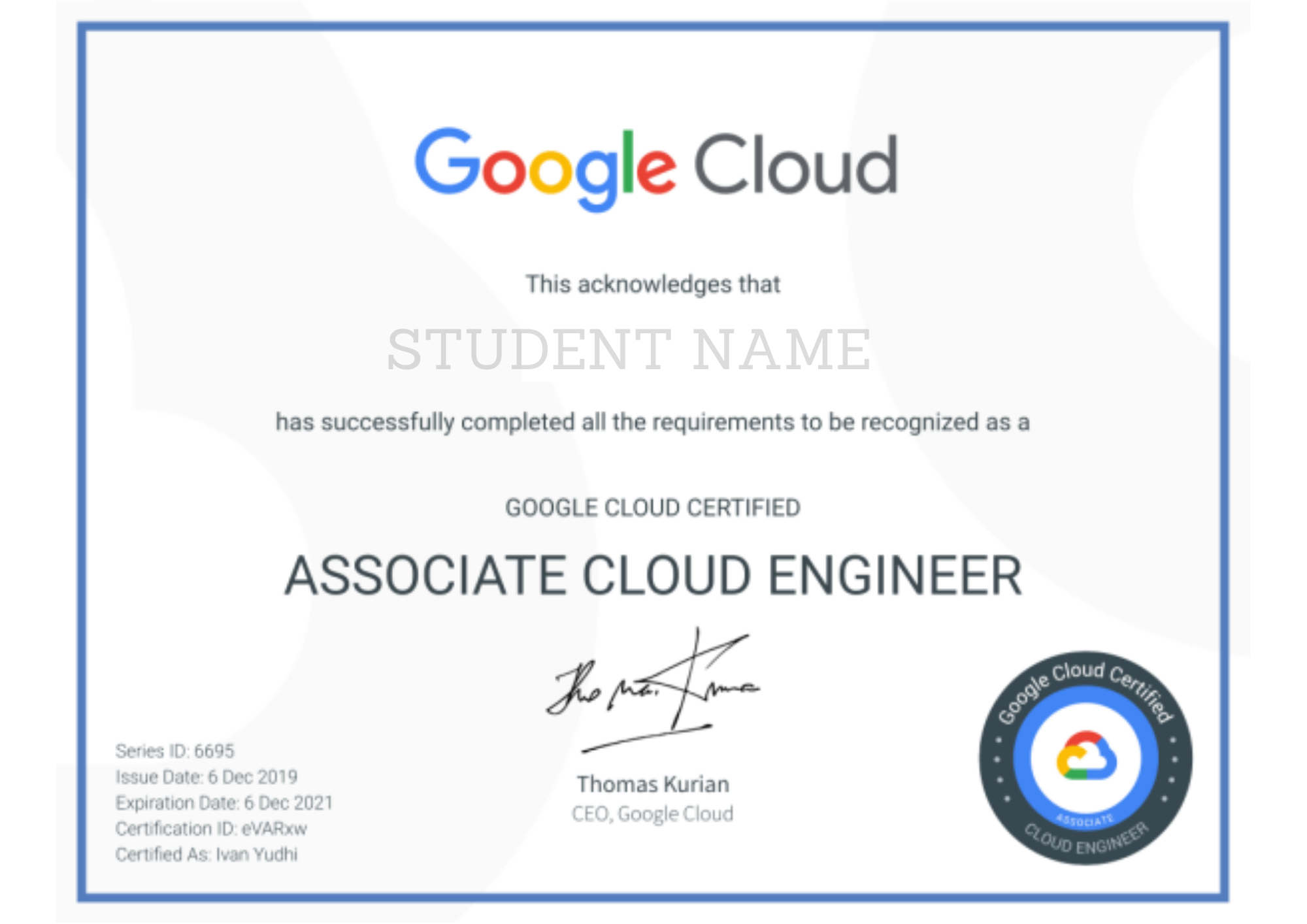
Google Cloud Engineer Associate Certification
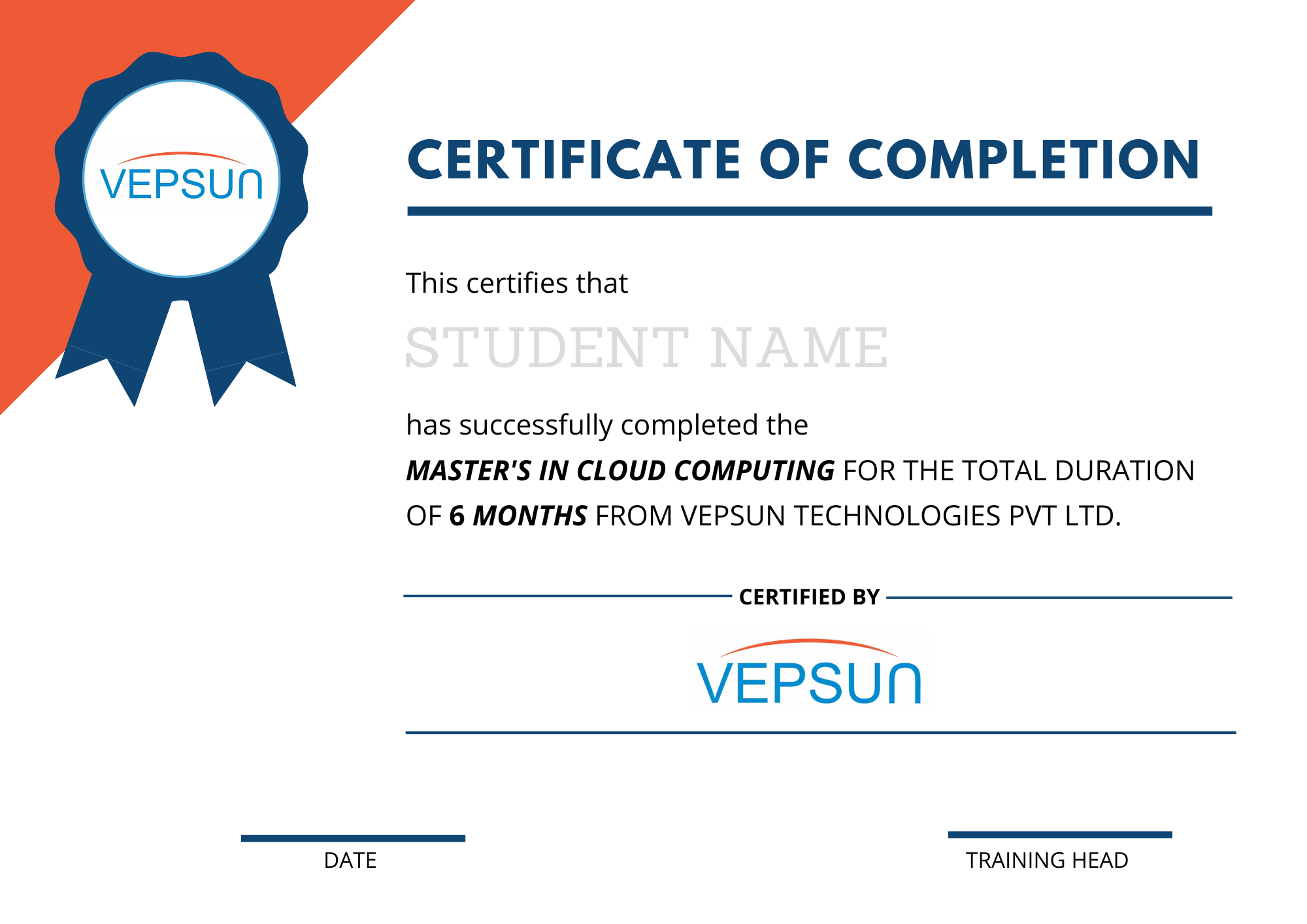
Certification by Vepsun
Happy Clients Our success is Measured by Results.
Projects- Our focus in on Delivering a better content.
Years of experience In Imparting Quality Training across Verticals.
Students Placed in Top MNC's
Platforms Covered

Jupyter Notebook
Project Jupyter is a nonprofit organization created to "develop open-source software, open-standards, and services for interactive computing across dozens of programming languages"

Pandas
Pandas is a software library written for the Python programming language for data manipulation and analysis. In particular, it offers data structures and operations for manipulating numerical tables and time series.
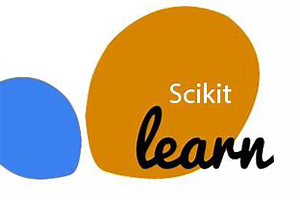
SciKit-Learn
Scikit-learn is a free software machine learning library for the Python programming language. It features various classification, regression and clustering algorithms including support vector machines, random forests, gradient boosting, k-means and DBSCAN, and is designed to interoperate with the Python numerical and scientific libraries NumPy and SciPy
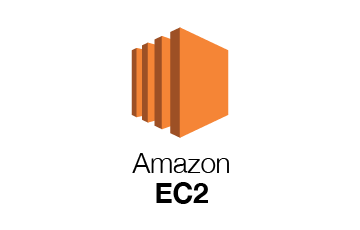
EC2
Amazon Elastic Compute Cloud is a part of Amazon.com's cloud-computing platform, Amazon Web Services, that allows users to rent virtual computers on which to run their own computer applications.
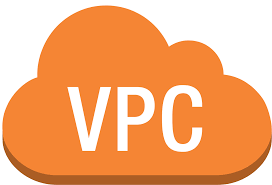
AWS-VPC
Amazon Virtual Private Cloud is a commercial cloud computing service that provides users a virtual private cloud, by "provision[ing] a logically isolated section of Amazon Web Services Cloud". Enterprise customers are able to access the Amazon Elastic Compute Cloud over an IPsec based virtual private network.

AWS-S3
Amazon S3 or Amazon Simple Storage Service is a service offered by Amazon Web Services that provides object storage through a web service interface.

AWS Route53
Amazon Route 53 is a scalable and highly available Domain Name System service.The name is a reference to TCP or UDP port 53, where DNS server requests are addressed, and a reference to U.S. Route 66.

Google Compute Engine (GCE)
Google Compute Engine (GCE) is the Infrastructure as a Service (IaaS) component of Google Cloud Platform which is built on the global infrastructure that runs Google's search engine, Gmail, YouTube and other services.

virtual private cloud (VPC)
A virtual private cloud (VPC) is an on-demand configurable pool of shared computing resources allocated within a public cloud environment, providing a certain level of isolation between the different organizations (denoted as users hereafter) using the resources.

Google Cloud Storage
Google Cloud Storage is a RESTful online file storage web service for storing and accessing data on Google Cloud Platform infrastructure. The service combines the performance and scalability of Google's cloud with advanced security and sharing capabilities.

Google Cloud SQL
Cloud SQL is a fully-managed database service that makes it easy to set up, maintain, manage, and administer your relational databases on Google Cloud Platform. You can use Cloud SQL with MySQL , PostgreSQL, or SQL Server .

Kubernetes Engine
Google Kubernetes Engine (GKE) is a management and orchestration system for Docker container and container clusters that run within Google's public cloud services. Google Kubernetes Engine is based on Kubernetes, Google's open source container management system.

VM
A virtual machine is a computer file, typically called an image, which behaves like an actual computer. In other words, creating a computer within a computer. It runs in a window, much like any other programme, giving the end user the same experience on a virtual machine as they would have on the host operating system itself.

Load Balancer
In computing, load balancing refers to the process of distributing a set of tasks over a set of resources (computing units), with the aim of making their overall processing more efficient.

Azure Storage
Azure Storage is a Microsoft-managed cloud storage service, that provides highly available, durable, scalable and redundant storage, at a fraction of the cost, if you were to manage it manually.

Azure Virtual Networking
Azure Virtual Network (VNet) is the fundamental building block for your private network in Azure.

VPN Gateway
A VPN gateway can be a router, server, firewall or similar device with internetworking and data transmission capabilities. However, in most cases, a VPN gateway is a physical router device. The VPN gateway is generally installed on the core VPN site or infrastructure.

Azure DNS
Azure DNS alias records are qualifications on a DNS record set. They can reference other Azure resources from within your DNS zone.

Azure Active Directory
Azure Active Directory is Microsoft's multi-tenant, cloud-based directory and identity management service.
Testimonials

Pankaj Singh
Learning is very good here. Trainers are very good for Azure and Aws. Completed my Aws & Azure Training.

Harish Pandey
I have completed my AZURE technologies.Training session was good. Thanks to my trainer. Thanks Vepsun Team.

Palak Singh
Best institute offering a AWS & Azure course within this good cost. Trainer was always ready to clear our doubt and support us. Also they have a good student coordinator.

Reena Sinha
Enrolled here for the course of Linux, trainers are highly qualified with great experience, staffs were quite helpful Kavita and Alka.

Shiva Reddy
Artifical Training content was very helpfull for me to get the job. Teaching and explanation was very good.Good experience overall.
Instructors and Experts
Learn from India's Best leading faculty and industry leaders

Sanjeev Singh
EXP 18+
Sameer
EXP 15+
Satwik Muthappa
EXP 15+
Mujaheed
EXP 12+Program Fee
Master's in Cloud Computing
INR. 2000*
Inclusive of all Taxes
- 4 Session/ classes
- Online - live Classes
Master's in Cloud Computing
INR. 23,994*
Inclusive of all Taxes
- Training
- Single Certification
- Online - live Classes
- No Cost EMI Available
Master's in Cloud Computing
INR. 39,990*
Inclusive of all Taxes
- Training
- Dual Certification
- Online - live Classes
- No Cost EMI Available
EMI Calculator
Documents required for the EMI Process
| Documents | Description |
|---|---|
| Photo | Photo Scanned or Taken by Phone |
| Pan | Scanned or Photo |
| Address Proof ( Any 2) | Aadhar/ Voter ID/ Passport/ DL/ Water Bill/ Piped Gas Bill/ Electricity/ Rent Agreement Franked |
| NACH ( Any 1) | Canceled Cheque/ Bank Statement First Page/ Passbook first page |
| Bank statements ( Any 1) | Salaried - (3 Months), Self Employed (6 months) |
| Income Proof (Any1) | Salaried - Latest Salary Slip, Self Employed - Company Incorporation proof / ITR |
Web : https://eduvanz.com/
Frequently Asked Questions
What is AWS?
AWS stands for Amazon Web Service; it is a collection of remote computing services also known as a cloud computing platform. This new realm of cloud computing is also known as IaaS or Infrastructure as a Service.
what is S3?
S3 stands for Simple Storage Service. You can use S3 interface to store and retrieve any amount of data, at any time and from anywhere on the web. For S3, the payment model is “pay as you go.”
What is AMI?
AMI stands for Amazon Machine Image. It’s a template that provides the information (an operating system, an application server, and applications) required to launch an instance, which is a copy of the AMI running as a virtual server in the cloud. You can launch instances from as many different AMIs as you need.
What is the relationship between an instance and AMI?
From a single AMI, you can launch multiple types of instances. An instance type defines the hardware of the host computer used for your instance. Each instance type provides different computer and memory capabilities. Once you launch an instance, it looks like a traditional host, and we can interact with it as we would with any computer.
What is AZure?
Microsoft Azure is a set of cloud computing services which allow organisations to build, manage and deploy applications and services through Microsoft managed Data Centers to meet business challenges. It provides Software as a Service (SaaS), Platform as a Service (PaaS), and Infrastructure as a Service (IaaS) and supports multiple programming languages.
what is Azure Used for?
Microsoft Azure is used for building, testing and deploying and managing applications and services. This includes creating virtual machines, creating and hosting websites and web applications and building mobile applications.
What are the career benfits of Microsoft Azure ?
Microsoft Azure is one the most trusted cloud computing services and is widely used by many Fortune 500 companies to bolster business activities. Microsoft Azure certification increases your chances of getting hired for cloud computing by an enormous extent. This is due to the high reputation of Microsoft certifications in the IT world. Popular multinational companies like Adobe, HP, Johnson Controls and IHG are using this cloud service and are benefitting greatly. It is also being considered as the technology of the future as it is easy to adopt and learn and serves as a highly efficient tool. Hence, a certification in Microsoft Azure provides lucrative career options with organisations providing an average salary of $118,781 per year for a Cloud Engineer and $123,684 per year for a Software Architect.
What is Microsoft Azure certification
Microsoft Azure certifications lets you understand the concepts of Microsoft Azure to perform daily tasks effectively and efficiently. It includes topics such as Azure Cloud Platform, Azure architecture, infrastructure and cloud computing.
Why learn Google Cloud Platform?
Google Cloud Platform is one of the leaders in the cloud space. Learning Google Cloud Platform can help open up opportunities for your career. It is highly secure and can reduce an organisation time-to-insight with it’s server-less big data analytics solutions. This is why many companies are adopting GCP for their cloud needs.
What is the best way to learn Google Cloud Platform?
GCP Certification Training is the best program that you need to master this cloud technology. We offer live instructor-led sessions supplemented by a 24x7 support system and lifetime access to our updated course materials. Our projects are designed for better hands-on for our learners. With these added advantages, we try to make sure that your learning objectives are fulfilled.
What is the future scope of Google Cloud Platform?
Career growth in GCP seems to be skyrocketing at the moment with more and more organizations looking towards GCP to solve their cloud needs. Companies like SPotify, HSBC, Ubisoft are deploying GCP based solutions already and this list seems to be growing day-by-day. Getting GCP Certified can help you get started with your career in this lucrative cloud technology space.
Contact Us

We offer most advanced technologies than any other computer and business training company. Businesses and individuals can choose from the course offerings, delivered by experts.
Soul Space Paradigm, 3rd Floor, West Wing, next to Hotel Radisson Blu, Marathahalli, Bengaluru, Karnataka 560037
+91 90-363-63007
+91 90-353-53007





